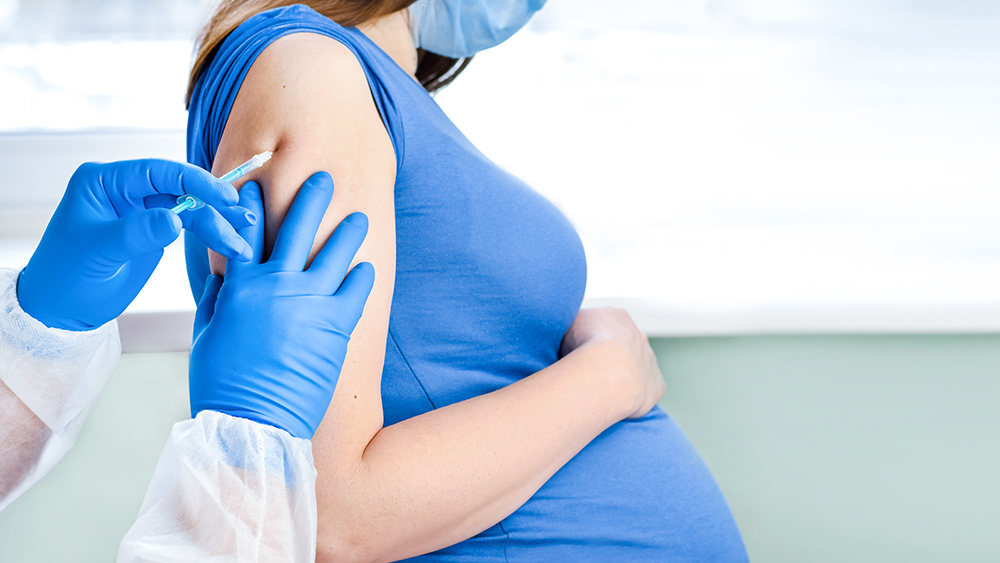REPORT: WHO could have prevented COVID-19 catastrophe
06/01/2021 / By Divina Ramirez

The coronavirus pandemic could have been prevented, according to an independent review panel.
In a report released on May 12, the Independent Panel for Pandemic Preparedness and Response (IPPR) said the combined response of the World Health Organization (WHO) and of global governments was a “toxic cocktail” that allowed the pandemic to turn into a catastrophic humanitarian crisis.
The panel, which has spent the last eight months reviewing evidence on how an outbreak became a pandemic, also said in its report that the WHO should have declared a global emergency much sooner than it did.
In particular, the initial responses to the outbreak in Wuhan, China back in December 2019 lacked urgency. February 2020 also proved to be a costly “lost month” as many countries failed to heed the alarm. Without urgent change, the world would be vulnerable to another major disease outbreak, concluded the panel.
COVID-19 has infected at least 160 million people worldwide and killed more than 3.3 million.
WHO took too long to sound the alarm
The panel was co-chaired by Ellen Sirleaf, a Nobel laureate and the former president of Liberia, and Helen Clark, former prime minister of New Zealand. The panel included a total of 11 experts spanning a range of backgrounds and countries including China and the United States. Panel members were asked to represent their institutions rather than their countries.
The panel began its investigation last September and was asked to present a full report ahead of the World Health Assembly (WHA) meeting this May. The panel released their findings online as an 86-page report titled, “COVID-19: Make it the Last Pandemic.”
The report came with an evidence-based narrative that detailed 13 defining moments that have steered the course of the pandemic. In its report, the panel pointed out that the WHO took too long to declare a Public Health Emergency of International Concern (PHEIC).
The WHO should have declared a PHEIC at its first meeting on Jan. 22 last year instead of on Jan. 30. For most countries, the declaration was “lost” as they failed to take timely measures to curb the outbreak.
The WHO was then hindered by its own regulations and its insistence that travel restrictions should be a last resort. Meanwhile, European countries and the U.S. wasted the entire month of February and only acted when their hospitals began filling up, the panel said.
New report echoes Trump’s jabs against WHO
The panel said nothing new as far as criticisms against the WHO go. Former President Donald Trump, a vocal critic of the organization, said the WHO and Director-General Tedros Ghebreyesus were too quick to accept COVID-19 data provided by China. Trump argued that the data painted a better situation than what was actually happening, effectively downplaying the threat of the pandemic and deceiving world leaders.
Trump made headlines last July when he moved to pull the U.S. out of the WHO because of these criticisms. The U.S. State Department sent a notice to the United Nations (UN), stating that the president had been clear that the WHO “needs to get its act together.”
The WHO found itself in hot water again after it dispatched a team of experts to Wuhan to trace the virus’s origin amid speculations that it was engineered in a laboratory in the city. But the team’s findings, which were published in February, only regurgitated Chinese Communist Party theories on the virus’s origins.
In particular, the report ruled out the idea that the virus emerged from a Wuhan laboratory. Instead, it gave credit to the theory that the virus traveled around the world through imported frozen meat. This is a narrative especially pushed by Beijing as it seeks to wash its hands of the coronavirus pandemic. (Related: Award-winning scientist says coronavirus was created at Wuhan lab.)
Many U.S. officials, including Trump, believe that the lab-leak theory is the most plausible explanation for the virus’s emergence. However, Ghebreyesus, who was seen shaking hands with Chinese President Xi Jinping last April, said all of the theories about the virus’s origin remain on the table.
To conclude, the panel said it finds that the current system is clearly unfit to prevent another novel and highly infectious pathogen from developing into a pandemic.
The panel also urged developed countries to share one billion vaccine doses with poorer countries by September to end the current pandemic. Another billion doses should be shared before the year is up. Additionally, the panel called for steps to ease intellectual property restrictions for COVID-19 vaccines.
To address future threats, the panel proposed several bold steps. These include establishing a Global Health Threats Council, which would maintain the global commitment for pandemic preparedness, and an International Pandemic Financing Facility, which would financially support pandemic preparedness efforts.
In the presentation of the report, Sirleaf stressed the need for bold reform. “Our message is simple and clear: The current system failed to protect us from the COVID-19 pandemic. And if we do not act to change it now, it will not protect us from the next pandemic threat, which could happen at any time.”
Read more articles with updates about the coronavirus pandemic at Pandemic.news.
Sources include:
Tagged Under: CCP, China, Chinese Communist Party, coronavirus origin, Coronavirus pandemic, covid-19, global emergency, infections, outbreak, pandemic, Tedros Ghebreyesus, WHO, World Health Organization, Wuhan coronavirus
RECENT NEWS & ARTICLES
Pandemic.News is a fact-based public education website published by Pandemic News Features, LLC.
All content copyright © 2018 by Pandemic News Features, LLC.
Contact Us with Tips or Corrections
All trademarks, registered trademarks and servicemarks mentioned on this site are the property of their respective owners.





















